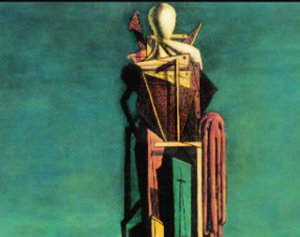
Posts Tagged ‘Cynic’
Action without reflection, the “active” life
When criticizing the “Society of tiredness”, the efficientism that Byung Chul Han takes up in his last book, in the following post we will comment, both point the finger at activism, or the word that Sloterdijk likes: “agitationism”.
Byung Chul Han takes up in his last book, in the following post we will comment, both point the finger at activism, or the word that Sloterdijk likes: “agitationism”.
The notion of praxis that Sloterdijk defends is not the notion of praxis as an act that considers the central myth of modernity – “agitationism”, which is, at bottom, just an inversion of poesis and theory – but as a “letting go -flow”, a type of active contemplation.
To demystify this notion of praxis as a necessary correlate of action-reason, practical philosophy would have to become aware that it allowed itself to be deluded by the myth of action and that its alliance with constructivism and activism prevented it from realizing that the The highest concept of behavior is not action, but letting it happen, being able to let go of the things that pass you by and act through you, in order to be more faithful to the author’s words.
To understand what he means by Critique of Cynic Reason, one of his most hermetic works, he differentiates classical from modern cynicism, which comes from the origin of the guild term “kŷőn”, from modern cynicism that has become an “enlightened false consciousness”.
The Enlightenment assumed that one lived in darkness where evil was practiced, but that this evil would be the result of ignorance, so its attempt to illuminate those lacking the light of reason, but this created a “false consciousness”, a distorted view of reality,
The Enlightenment presupposed darkness where evil was practiced, which was seen as the fruit of ignorance. Criticism tried to illuminate the dens devoid of the light of reason. Hence the basic concept of ideology as “false consciousness”, as a distorted and therefore false view of reality, and so that you don’t think that this is just philosophy, the “engaged” thinker Slovoj Zizek will also say that it is inscribed in the things themselves.
In a different way, Husserl, from whom all the affiliation of modern phenomenology is heir, also proposed, to return to consciousness of the things themselves.
Modern cynicism has also become a form of ideology in which a mask continues to turn into action, building grand theories that both “figuratively” and “in the literal sense act as if they don’t know or don’t know reality, everything is narrative only to use the current word.
Hence the critique of cynical reason defending a critical-ideological-classical procedure that has become obsolete, and this critique now contrasts a lightness of humor with the excess of theory.
The author will say: “[…] The great thought of antiquity has its roots in the experience of enthusiastic serenity, when, at the height of having thought, the thinker sets aside, letting himself be penetrated by the ‘revelation’ of the truth” , is very close to the distance proposed by some “active” authors, but with the differences of “enthusiastic” serenity and the view of “Being”.
This view of the cosmos in antiquity, says the author: “it is based for the Ancients on “cosmic passivity” and on the observation that radical thinking can recover its inevitable backwardness in relation to the given world, in by virtue of its experience of being, it reaches the same level as the “whole.”
SLOTERIJK, P. (2012) Critica da Razão Cínica (Critique of Cynic Reason), trans. Marco Casanova. BR, São Paulo: Estação Liberdade.

